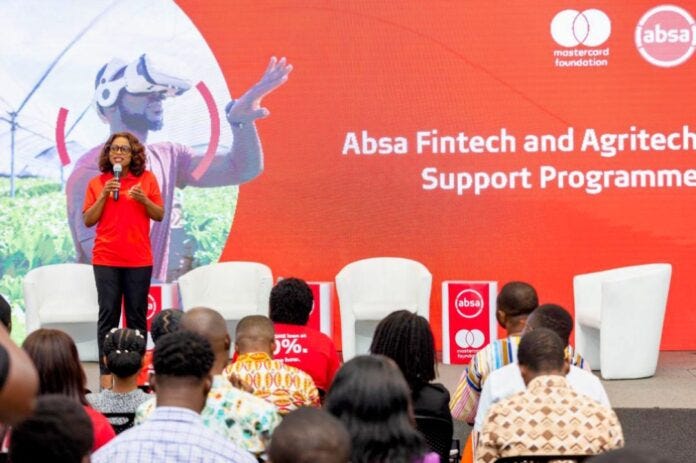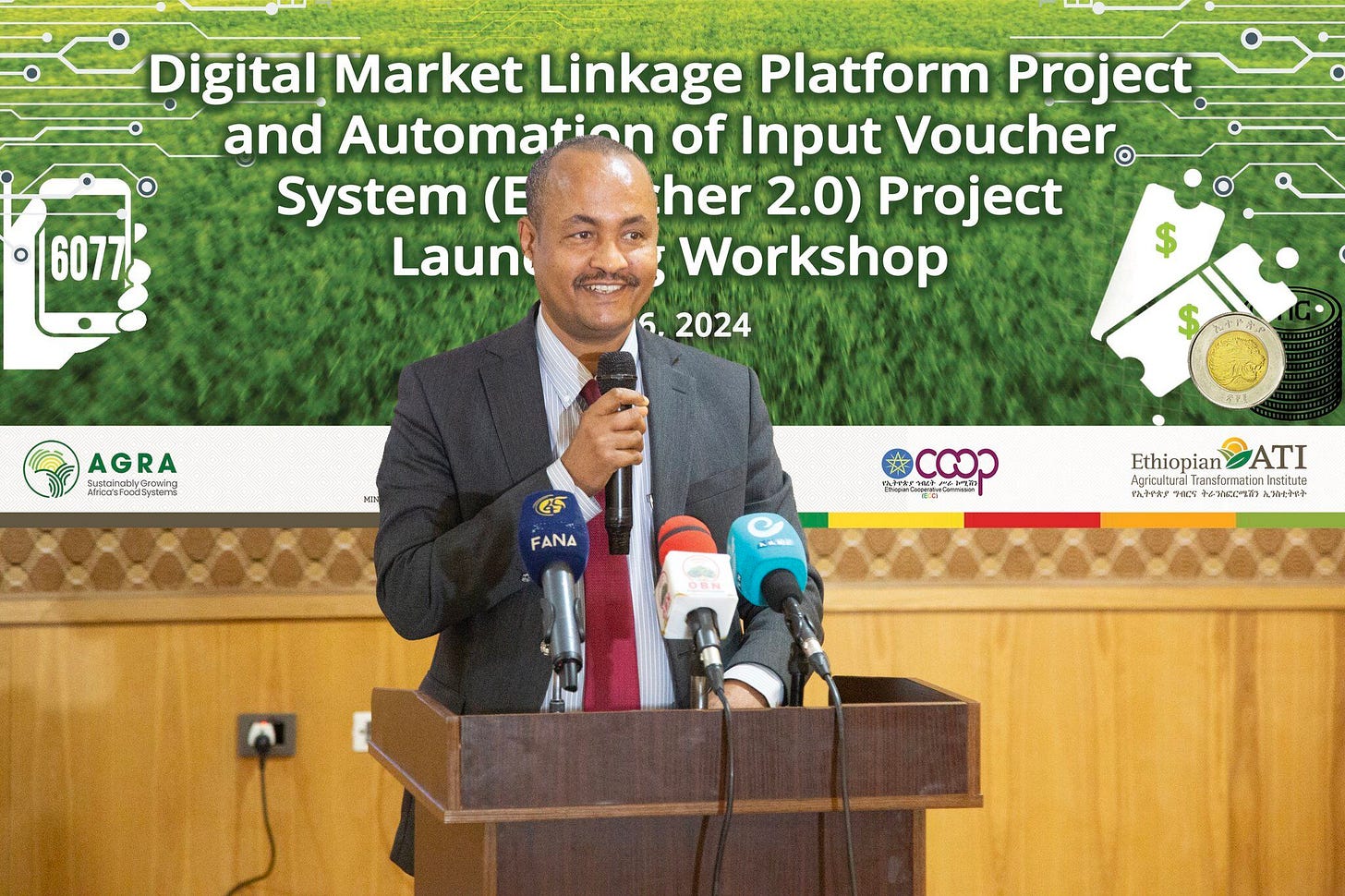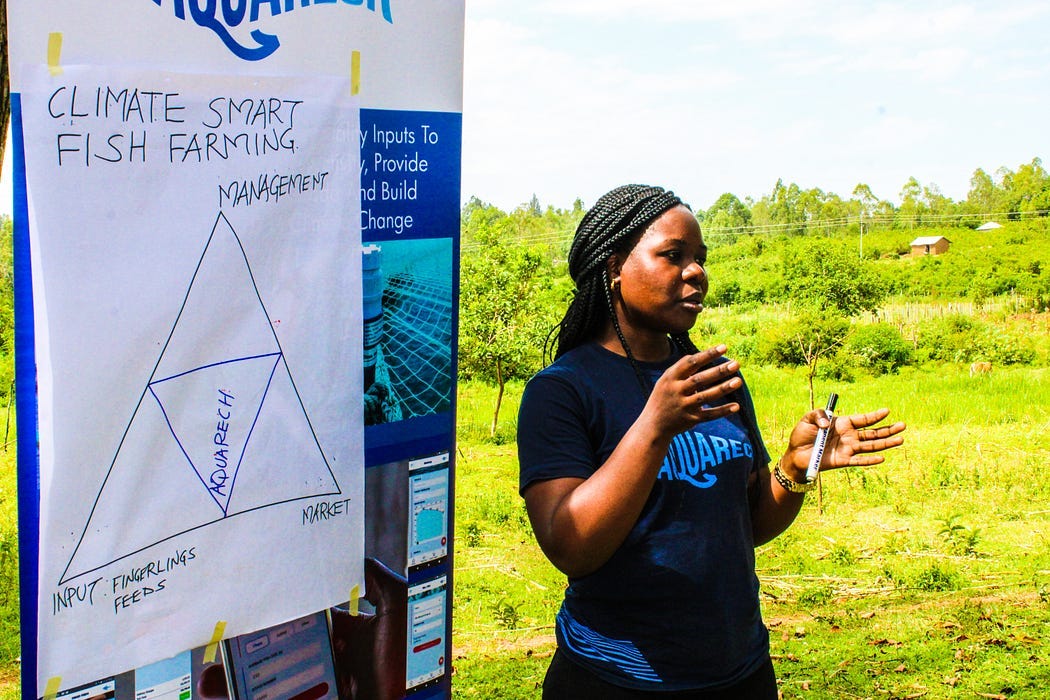Digital Agriculture in LMICs -24 Jul #63
Aquarech and Coamana bag funding in Kenya and Nigeria; India’s government announces $90M fund for agri startups; CropIn launches GenAI solution
11/07/24
Absa Bank and Mastercard to invest in 10 Ghanaian agritechs and fintechs
Absa Bank has launched in partnership with Mastercard Foundation the second phase of the Absa Fintech and Agritech Support Programme. The programme will benefit ten Ghanaian agritech and fintech startups with a total grant of USD 65,000 (GHS 1 million) to help them deal with technical, operational, and financial challenges. The startups will receive capacity building from Meltwater Entrepreneurial School of Technology (MEST) Africa to equip them with entrepreneurial skills. Absa Bank and Mastercard Foundation encourage applications from women-owned fintech and agritech businesses as well as persons with disability. The two organisations have been working on this initiative since 2022 as part of Young Africa Works (YAW), a 5-year (2020-2025) partnership with the goal of creating 50,000 jobs for young Ghanaians. In the first phase of the initiative, ten startups were awarded a total grant of GHS 2 million, with each beneficiary receiving up to GHC 250,000.
Photo credit: Absa Bank
12/07/24
India’s government announces $90M fund for agritechs, agribusinesses
The Government of India has announced plans to launch an “Agri Fund for Start-Ups & Rural Enterprises” (AgriSURE) to provide support to agritechs and agribusinesses. A fund of about INR 7.5 billion (USD 89.6 million) will be established to support innovators by providing both equity and debt investments. AgriSURE will be managed by NABVENTURES, a venture growth equity fund that invests in agriculture, food, rural businesses and agri/rural financial services at early to mid-stages. NABVENTURES is a wholly-owned subsidiary of India’s National Bank for Agriculture and Rural Development (NABARD).
Two thirds of the value of the fund come from equal contributions from the Department of Agriculture and Farmers Welfare and NABARD, with the remaining one third (approximately USD 29 million) from financial institutions. The fund will support around 85 agribusiness startups with investments of up to INR 250 million (USD 3 million) each, focusing on high-risk, high-impact activities within the agriculture value chain.
17/07/24
CropIn launches generative AI agri intelligence solution
Indian agritech CropIn has launched CropIn Sage, a generative AI agri-intelligence platform aimed at simplifying decision-making for private and public sector players in agricultural value chains. Powered by Google’s Gemini, Sage is a querying engine that combines deep tech components such as Generative AI, multi-layered global climate data, a global crop knowledge graph, earth observation data, and advanced crop models. The solution enables agribusinesses, input companies, food companies, government and multilateral organisations working with smallholder farmers to generate grid-based maps of agricultural land and obtain localised insights, such as the predicted crop output of a given area. Established in 2010, Cropin is an agritech software-as-a-service (SaaS) startup leveraging AI and predictive analytics to help customers enhance farming efficiency and productivity.
18/07/24
Ethiopian government launches new digital agriculture initiatives
The Ethiopian Agricultural Transformation Institute (ATI) has launched two new digital agriculture initiatives in partnership with AGRA to enhance the country’s market systems for agri inputs and outputs. ATI will establish a digital platform to connect smallholder farmers with potential buyers. The new platform will be developed based on the pre-existent National Market Information System (NMIS) project, which was introduced in 2019. ATI will also automate the input voucher system through the eVoucher 2.0 scheme, which introduces electronic vouchers with a digital code that can be used to purchase goods or services online or in stores. ATI has initiated several initiatives to enhance the agricultural sector in Ethiopia. Just last month, it partnered with NGO Digital Green to digitise farmer registries, enhance agricultural extension channels, and improve market access for smallholders, with a focus on women and young farmers. In Ethiopia, agriculture represents 32% of GDP and 75% of total export value. It is a source of income for 62% of population. ATI was established in 2010 by the Prime Minister with a mission to catalyse agricultural transformation and with funding from Bill & Melinda Gates Foundation.
Photo credit: Ethiopian Agricultural Transformation Institute (ATI)
18/07/24
Cameroon’s government launches Agritech Innovation Challenge with World Bank support
The government of Cameroon has announced the Agritech Innovation Challenge (AIC) to stimulate innovation in the agropastoral sector. The challenge aims to promote digital inclusion and the use of digital agriculture solutions. It is part of the USD 100 million “Project to Accelerate Digital Transformation in Cameroon” (PATNuC), which supports the development of the digital ecosystem and aims to bridge the digital gap in rural areas. PATNuC is funded by the World Bank’s International Development Association (IDA) and implemented in collaboration with Cameroons’ the Ministry of Posts and Telecommunications (MINPOSTEL), the Ministry of Agriculture and Rural Development (MINADER), and the Ministry of Fisheries, Livestock, and Animal Industries (MINEPIA). The AIC will award up to ten Cameroonian agritech startups with CFA 40 million each (approximately USD 63,000). Startups will also receive support from PATNuC to implement their business plans. Registration will close on 20 August.
23/07/24
Aquarech and Coamana get $350K, $500K from Village Capital
Village Capital, a non-profit organisation supporting impact-driven, seed-stage startups, has backed two African agritechs, Aquarech (Kenya) and Coamana (Nigeria). The startups will receive respectively USD 350,000 and USD 500,000, as part of Village Capital’s Reducing Inequalities Investment Facility, backed by the “Micro and Small Enterprise Fund” (MASSIF) of Dutch Entrepreneurial Development Bank FMO. The facility has so far invested USD 1.6 million across four startups.
Established in 2019, Aquarech is a mobile based fish farming platform enabling market linkages between fish farmers, feed manufacturers and traders. The startup offers a buy now pay later solution (BNPL) for fish feed.
Photo credit: Aquarech
Founded in 2018, Coamana is a Software as a service (SaaS) company focused on strengthening market linkages across Sub-Saharan Africa. Through its marketplace, farmers and traders can sell their products, get loans, and access real-time market prices and purchase requests.
16/07/24
Good reads: GSMA report explores potential of AI in agriculture
The new GSMA report “AI for Africa: Use Cases Delivering Impact” looks at AI-enabled use cases and solutions that can drive socio-economic and climate impact in Kenya, Nigeria and South Africa, in key sectors of society and the economy. The study analyses over 90 use case applications across sectors including agriculture and food security, energy and climate action. It finds that the majority of use case applications are related to agriculture (49%), followed by climate action (26%) and energy (24%). The GSMA finds that the majority of AI use cases in agriculture involve machine learning (ML) enabled digital advisory services, which equip farmers with data-driven advice to adopt climate-smart farming practices and optimise productivity. These solutions typically reach farmers via mobile devices, highlighting the importance of device ownership, digital skills and literacy and user-friendliness.
👉 Dear reader, thank you again for your support! It’s time for ArisTechia to take a short summer break.. We will be back on 21 August.






